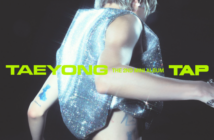In the almost three years since debut, FNC Entertainment’s SF9 have made the smooth transition from rookies to well-established Kpop fixtures.
They have found success through Rowoon, an idol renowned for looks and personality, as well as a concentrated campaign of international concerts. They’ve had a busy few years and, perhaps, it’s hard to associate SF9 with a particular sound or direction.
RPM, their newest EP, launched this past week. It’s a collection that fluctuates between the hip-hop infused sound of their earliest offerings and the more experimental elements we glimpsed in O Sole Mio.
RPM draws its name from ‘revolutions per minute’ – a term most commonly used to measure how fast a machine is running.
It’s no wonder, then, that the 6-album EP is heavy on synth and dictated rhythm. RPM, the eponymous title track of the album, features a strong percussive backbeat, while Round and Round is led by the guitar riff.
This is a loud album – with strong choruses and assertive verses. Interestingly, however, this is also what makes it somewhat underwhelming. The excess of it all exposes how this is an album ultra reliant on current trends.
Most prominently, is the hard lean into the trope of mixing contrasting genres. As is common in many songs of this type, Dreamer, the midpoint in the album, is structured by disjointed musical themes fused together by a synth chorus sparse of vocals. There isn’t a polished transition between segments, so instead of seeming purposeful, the drop it continually builds towards falls flat.
In contrast, See You Tomorrow achieves this much more coherently, and more enjoyable. This is a fast-paced, well-balanced dance track hidden in a misleadingly gentle intro.
But the real crown jewel of RPM is Round and Round. It feels modern and fresh – a song that was made to be performed on stage. It has an uplifting quality that could have easily made it the lead title. It’s also one of the only songs in the album in which the melody is not overshadowed by an instrumental chorus.
RPM, at times, feels like it’s dragging you back into the annals of Kpop, before pulling you back into the brash, loud consortium of beat drops.
This is an album saved by SF9’s neat vocals and deft melodies. Otherwise, it feels like filler – an offering falling short of the punchy, vibrant character portrayed through SF9’s title tracks. Lacking distinction, Dreamer and Echo still shine, showcasing glimmers of SF9’s potential.


![[Album Review] SF9 – RPM](https://unitedkpop.com/wp-content/uploads/2019/06/arv_rpm_twit-1078x488.jpg)


